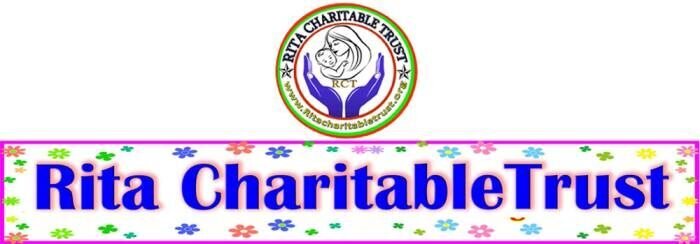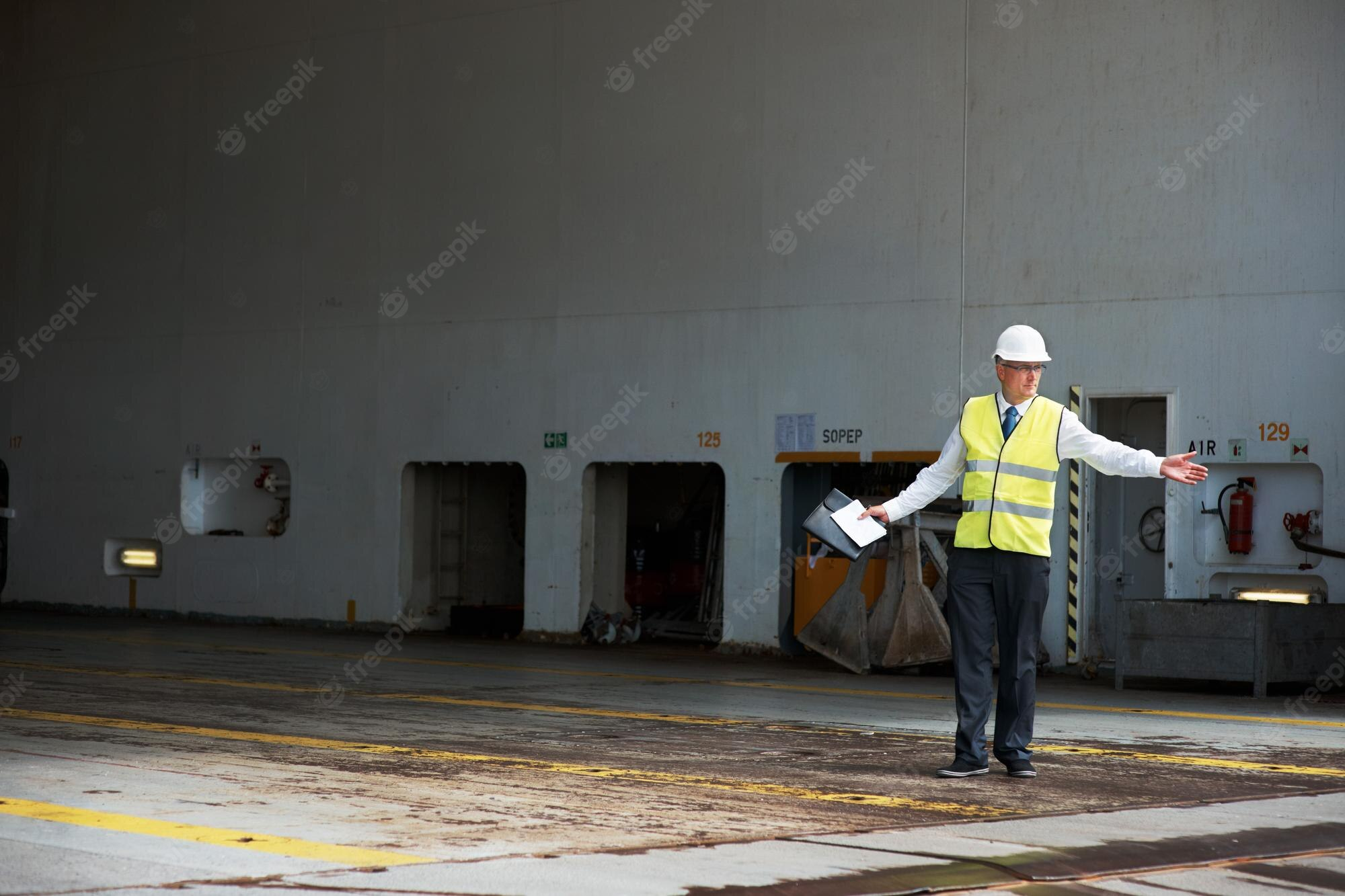Courier Supervisor (1 years diploma )
Courier Supervisor click here
Brief Job Description: The individual is responsible for supervising courier
centre/hub activities such as courier handling, sorting, bagging, delivery and cash
collection. The individual would manage the workforce and equipment deployed
and resolve issues to ensure effective and smooth operations.

Qualifications Pack for Courier Supervisor
Options
Option 1: Customs clearance support
The individual will supervise customs clearance activities by coordinating with
customs officials, client and internal stakeholders
Option 2: Business development
The individual would prepare sales target, make pitch to existing clients and new
prospects. S/he would also liaise with customs and other government officials,
vendors and other contractors
Option 3: Profit management
The individual would review department wise budget, financial performance and
analyze profitability and business performance trends
Personal Attributes: A courier supervisor should have good communication and
team management skills, and reasoning ability to identify issues and suggest
remedial measures for the same. The person should also have good physical
strength, and ability to coordinate activities between multiple stakeholders.
Description
Core Skills/Generic
Skills
Core Skills or Generic Skills are a group of skills that are key to learning and
working in today’s world. These skills are typically needed in any work
environment. In the context of the NOS, these include communication related
skills that are applicable to most job roles.
Function
Function is an activity necessary for achieving the key purpose of the sector,
occupation, or area of work, which can be carried out by a person or a group
of persons. Functions are identified through functional analysis and form the
basis of NOS.
Job role Job role defines a unique set of functions that together form a unique
employment opportunity in an organization.
Knowledge and
Understanding
Knowledge and Understanding are statements which together specify the
technical, generic, professional and organizational specific knowledge that an
individual needs in order to perform to the required standard.

National Occupational
Standards (NOS) NOS are Occupational Standards which apply uniquely in the Indian context
Electives
Electives are NOS/set of NOS that are identified by the sector as contributive
to specialization in a job role. There may be multiple electives within a QP for
each specialized job role. Trainees must select atleast one elective for the
successful completion of a QP with Electives
Options
Options are NOS/set of NOS that are identified by the sector as additional
skills. there may be multiple options within a QP. It is not mandatory to select
any of the options to complete a QP with Options.
Unit Code Unit code is a unique identifier for an Occupational Standard, which is
denoted by an ‘N’
Unit Title Unit title gives a clear overall statement about what the incumbent should be
able to do.
Occupation Occupation is a set of job roles, which perform similar/related set of functions
in an industry.
Organisational Context
Organisational Context includes the way the organization is structured and
how it operates, including the extent of operative knowledge managers have
of their relevant areas of responsibility.
Performance Criteria Performance Criteria are statements that together specify the standard of
performance required when carrying out a task.
Qualifications
Pack(QP)
Qualifications Pack comprises the set of NOS, together with the educational,
training and other criteria required to perform a job role. A Qualifications
Pack is assigned a unique qualification pack code.
Qualifications Pack
Code
Qualifications Pack Code is a unique reference code that identifies a
qualifications pack.
Scope Scope is the set of statements specifying the range of variables that an
individual may have to deal with in carrying out the function which have a
critical impact on the quality of performance required.
Sector
Sector is a conglomeration of different business operations having similar
businesses and interests. It may also be defined as a distinct subset of the
economy whose components share similar characteristics and interests.
Sub-Sector Sub-sector is derived from a further breakdown based on the characteristics
and interests of its components.
Sub-functions Sub-functions are sub-activities essential to fulfil the achieving the objectives
of the function.
Technical Knowledge Technical Knowledge is the specific knowledge needed to accomplish specific
designated responsibilities.
Description
3PL Third-party logistics
5S Sort, Set In order, Shine, Standardize and Sustain
BOE Bill of Entry
CGST Central Goods and Services Tax
CRM Customer Relationship Management
CBr Customs agent/broker
ERP Enterprise Resource Planning
GST Goods and Services Tax
GSTIN Goods and Services Tax Identification Number
GPS Global Positioning System
HR Human Resources
HSN Harmonised System of Nomenclature
ICEGATE Indian Customs EDI Gateway
ICES Indian Customs EDI System
IGST Integrated Goods and Services Tax
IT Information Technology
JIT Just in time
MHE Material Handling Equipment
MIS Management Information System
NSQF National Skills Qualifications Framework
OH&S Occupational Health and Safety
OS Occupational Standards

OSHA Occupational Safety and Health Administration
PGAs Partner Government Agencies
PO Purchase order
PPE Personal Protective Equipment
QP Qualifications Pack
RFID Radio Frequency Identification
SEZ Special Economic Zones
SLA Service level agreements
SOP Standard Operating Procedure
TAT Turnaround Time
TMS Transport Management System
WMS Warehouse Management System
Allocate resources and streamline operations
Description This unit is about allocating resources and streamlining operations
Scope This unit/task covers the following:
• Prepare daily plan and allocate resources
• Resolve escalated issues
• Monitor daily operations
Range: Stationery, Radio frequency identification (RFID) scanner, bar code scanner,
plastic bags, markers, Personal Protective Equipment (PPEs), Enterprise Resource
Planning (ERP), computer, printers, Global Positioning System (GPS) tracker, Material
Handling Equipment (MHEs), etc.
Performance Criteria(PC) w.r.t. the scope
Element Performance Criteria
Prepare daily work
plan and allocate
resources
To be competent, the user/ individual must be able to:
PC1. obtain order details such as transport plans, delivery schedules, priority
orders, weekly work allocation
PC2. develop daily work plan factoring in priority cases, cases requiring exceptional
handling
PC3. get the work plan approved from the manager
PC4. allocate tasks to workers and associates
PC5. budget and allocate the requisite MHE for different tasks at hand
Resolve escalated issues
To be competent, the user/ individual must be able to:
PC6. identify priorities as and when they come and allocate adequate resources to
address them
PC7. provide guidance to assistants and workers when they get stuck
PC8. suggest possible solutions, work around and to resolve issues
PC9. escalate the matter to manager for external technical help
PC10. coordinate with other departments to plan movement shipments
PC11. liaison with officials and external stakeholders to streamline operations
Monitor daily operations
To be competent, the user/individual on the job must be able to:
PC12. conduct field inspections to review the status of different on-going activities
PC13. conduct inspection of operational area, warehouse for safety, cleanliness, etc.
PC14. identify cases that require allocation of additional resources
PC15. identify idle resources and put them to use
PC16. monitor the work of the assistants and executives check for errors in
documentation and daily operation
PC17. review work of the assistants and workers with respect to the allocated work,
accidents and damages
Knowledge and understanding (K)
A. Organizational
context
(Knowledge of the
company /
organization and
its processes)
The individual on the job needs to know and understand:
KA1. organizational procedures
KA2. different hubs and service stations of the organization
KA3. documentation and reporting as per organization’s mandate
KA4. security procedures to be followed
KA5. escalation matrix for reporting identified problems
KA6. risk and impact of not following defined procedures/work instructions
KA7. coding system followed to label mail
KA8. Information Technology (IT) system and ERP system of the organization
B. Technical knowledge
The individual on the job needs to know and understand:
KB1. use of computer and associated data management devices
KB2. basic trouble shooting regarding data management devices

KB3. scheduling and planning of different activities
KB4. geographical locations and route maps
KB5. information from the ERP system
KB6. geographical spread of states and cities
KB7. labels and instructions regarding shipments, MHEs, equipment and work-place
KB8. overall courier value chain
KB9. types of shipments being handled
KB10. special characteristics and handling requirements of shipments, if any
Skills (S)
A. Core skills/
generic skills
Reading skills
The user/individual on the job needs to know how to read:
SA1. written instructions
SA2. invoicing label and shipment labels
SA3. ERP and computer generated reports
Writing skills
The user/individual on the job needs to know how to write:
SA4. work-orders and instructions
SA5. checklist of activities, delays, undelivered items, contacts, etc
SA6. daily reports
Oral communication (listening and speaking skills)
The user/individual on the job needs to know how to:
SA7. communicate with customers and workers
SA8. communicate and collect information from different departments
B. Professional skills Decision making
The user/individual on the job needs to know how to:
SB1. escalate the query and to which department
SB2. resolve a problem quickly internally
SB3. prioritise shipments
SB4. plan and alternate or alternate transport in case a delivery/ pickup vehicle is stuck
Plan and organize
The user/individual on the job needs to know how to:
SB5. plan and estimate the co-ordination required for resolving a querry.
SB6. maintain puntuality
SB7. respond to the client in a timely manner
SB8. prioritize and execute tasks based on client requirements
SB9. make work plans and resource allocation plans
SB10. make checks on execution of work plans
SB11. be a team player and achieve joint goals
Customer centricity
The user/individual on the job needs to know how to:
SB12. adhere to the customer timelines
SB13. address the urgency regarding shipments and activities
Problem solving
The user/individual on the job needs to know how to:
SB14. identify trends/common causes for delays, issue in tracking, etc.
SB15. co-ordinate and handle major issues with different departments
SB16. identify bottlenecks and operational problems and suggest remedial action

Analytical thinking
The user/individual on the job needs to know how to:
SB17. assess the resource requirement for a particular task at hand
SB18. assess and prepare for backup transport in case of continous delays
SB19. plan for shipment movement so that the resources are optimally utilised
Critical thinking
The user/individual on the job needs to know and understand how to:
SB20. resolve issues in a qucik and cost effective manner
SB21. develop work plans factoring in external factors
Supervise courier delivery centre and hub operations
Description This unit is about supervising on ground courier operations
Scope This unit/task covers the following:
• Monitor and track courier operations
• Perform closing and reporting
Range: Stationery, Radio Frequency Identification (RFID) scanner, bar code scanner,
plastic bags, markers, Personal Protective Equipment (PPEs), Enterprise Resource
Planning (ERP), computer, printers, Global Positioning System (GPS) tracker, Material
Handling Equipment (MHEs), etc.
Performance Criteria(PC) w.r.t. the scope
Element Performance Criteria
Monitor and track
courier operations
To be competent, the user/individual on the job must be able to:
PC1. track and monitor loading, unloading, sorting and binning activities
PC2. review and inspect shop floor for cleanliness, errors, damages, etc.
PC3. inspect material handling equipment for fitness, highlight and escalate cases
requiring repairs
PC4. obtain real time updates from the delivery and collection executives on
delivery/pick-up activities and follow-up with the executives to check the
status, if the updates are not received
PC5. monitor loading, unloading and other operational activities for adherence to
timeliness and accuracy
PC6. provide solution for on-ground staff regarding escalations related to missing
shipment, parcel handling damages, missing documents, quarantine
requirements etc.
PC7. identify bottlenecks, delays and issues and allocate alternate or additional
resources as required
PC8. escalate critical and delayed cases to management for resolution
Perform closing and
reporting
To be competent, the user/individual on the job must be able to:
PC9. obtain daily status from associates regarding the operations completed,
accidents, delays and damages
PC10.report on daily damages, MHE repair requirements, accidents, transport delays
in pickups and deliveries to manager
PC11.suggest ideas to streamline operations to increase efficiency
Knowledge and Understanding (K)
B. Organizational
Context
(Knowledge of the
company /
organization and
its processes)
The individual on the job needs to know and understand:
KA1. organizational procedures
KA2. different hubs and service stations of the organization
KA3. documentation and reporting as per organization’s mandate
KA4. security procedures to be followed
KA5. escalation matrix for reporting identified problems
KA6. risk and impact of not following defined procedures/work instructions
KA7. coding system followed to label mail.
KA8. Information Technology (IT) system and ERP system of the organization

B. Technical
Knowledge
The individual on the job needs to know and understand:
KB1. use of computer and associated equipment
KB2. basic trouble shooting regarding material handling equipment
KB3. scheduling, planning, etc.
KB4. geographical locations and route maps
KB5. reading information from the ERP/ Management Information System (MIS)
system
KB6. geographical spread of states and cities
KB7. how to read labels and understand instructions in the customer query
resolution log book
KB8. various escalations regarding resolving and catering to the customer query
KB9. overall process from pickup to delivery and different departments engaged in
the process
KB10. types of goods being handled
KB11.special characteristics and handling requirements of goods, if any
Skills (S)
C. Core Skills/
Generic Skills
Reading Skills
The user/individual on the job needs to know and understand how to:
SA1. read and understand written instructions
SA2. read product instructions as per the invoicing label and shipment labels
SA3. read information from MIS reports and computer generated reports
SA4. read management directions in English
Writing Skills
The user/individual on the job needs to know and understand how to:
SA5. write work-orders and instructions for resources
SA6. prepare list of activities, delays, undelivered items, contacts, etc
SA7. write end of the day reports
Oral Communication (Listening and Speaking skills)
The user/individual on the job needs to know and understand how to:
SA8. communicate clearly in local language or English with customers and various
internal departents and workers
SA9. communicate and collect information from different departments
D. Professional Skills Decision Making
The user/individual on the job needs to know and understand how to:
SB1. escalate the query and to which department
SB2. resolved a problem quickly internally
SB3. prioritse a shipment
SB4. plan an alternate route or alternate transport in case a delivery/ pickup vehcile
is stuck
Plan and Organize
The user/individual on the job needs to know and understand how to
SB5. plan and estimate the co-ordination required for resolving a querry.
SB6. maintain puntuality and avoid absenteeism
SB7. should respond to the client in a timely manner
SB8. prioritize and execute tasks based on client requirements
SB9. make work plans and resource allocation plans
SB10. make checks on execution of work plans
SB11. be a team player and achieve joint goals
Customer Centricity
The user/individual on the job needs to know and understand how to:
SB12. adhere to customer timelines
SB13. understand and communicate the urgency of customers to the relevant
department
Problem Solving
The user/individual on the job needs to know and understand how to:
SB14. identify trends/common causes for delays, issue in tracking, etc. and resolve
the same over call with the client
SB15. co-ordinate and handle major issues with different departments
SB16. identify small bottlenecks and operational problems and provide alternate
solutions for the same
SB17. identify challenges in delivery and pickup operations and accordingly suggest
remedial actions
Analytical Thinking
The user/individual on the job needs to know and understand how to:
SB18. assess the resource requirement for a particular task at hand
SB19. assess and prepare for backup transport in case of continous delays
SB20. plan for shipment movement so that the resources are optimally utilised
Critical Thinking
The user/individual on the job needs to know and understand how to:
SB21. resolve issues in a qucik and cost effective manner
SB22. develop work plans factoring in external factors while designing unloading
and loading allocations, resource budgets, etc.
Supervise last mile operations
Description This unit is about supervising supervising operations at last mile and transport
planning
Scope This unit/task covers the following:
• Prepare daily route plans
• Monitor transport movement
• Perform closing activities and reporting
Range: Stationery, Radio Frequency Identification (RFID) scanner, bar code scanner,
plastic bags, markers, Personal Protective Equipment (PPEs), Management
Information System (MIS), computer, printers, Global Positioning System (GPS)
tracker, Material Handling Equipment (MHEs), etc.
Performance Criteria(PC) w.r.t. the scope
Element Performance Criteria
Prepare daily route
plans
To be competent, the user/individual on the job must be able to:
PC1. obtain the list of deliveries to be made during the day
PC2. prioritize the shipment to be delivered/picked-up based on the deadlines
PC3. prepare route map factoring in traffic, external environments and regulations
for delivery activities for the day

PC4. review the vehicle inspection reports for conformance to fitness requirement
PC5. allocate tasks to delivery associates
PC6. communicate the route plan to the executive for feeding into the system
Monitor transport movement
To be competent, the user/individual on the job must be able to:
PC7. review the report on readiness of the vehicle with appropriate documents
PC8. track the outbound shipments via GPS
PC9. monitor movement of delivery transport vehicles in accordance with the
schedule
PC10. identify the cases of delays, vehicle breakdowns, etc. and arrange for alternate
delivery channels
PC11. resolve issues of the delivery truck drivers and executives, where drivers
unable to connect to customer
PC12. resolve queries on on-ground staff and associates to ensure smooth operations
PC13. coordinate with authorities to resolve issues wherein trucks are stuck
PC14. coordinate with clients and customers where the executive is facing issues
PC15. escalate cases of expected delays and critical issues to management for
further action
To be competent, the user/individual on the job must be able to:
PC16.obtain daily status from delivery and pickup drivers
PC17.obtain payments from the delivery associates, verify with respect to invoicing
and handover cash to the accounts team
PC18. compile list of undelivered shipments and contact consignees of undelivered
shipments
PC19.prepare daily operation reports in terms of courier movement, total loading
and unloading activities, resource utilization and manpower deployment
PC20.report on daily damages, MHE repair requirements, accidents, transport delays
in pickups and deliveries etc.
Knowledge and understanding (K)
A. Organizational
context
(Knowledge of the
company /
organization and
its processes)
The individual on the job needs to know and understand:
KA1. organizational procedures
KA2. different hubs and service stations of the organization
KA3. documentation and reporting as per organization’s mandate
KA4. security procedures to be followed
KA5. escalation matrix for reporting identified problems
KA6. risk and impact of not following defined procedures/work instructions
KA7. coding system followed to label mail
KA8. the Information Technology (IT) system and ERP system of the organization
B. Technical
knowledge
The individual on the job needs to know and understand:
KB1. use of computer and associated equipment
KB2. basic trouble shooting regarding material handling equipment
KB3. scheduling, planning, etc.
KB4. geographical locations and route maps
KB5. reading information from the ERP/ MIS system
KB6. geographical spread of states and cities
KB7. how to read labels and understand instructions in the customer query
resolution log book
KB8. various escalations regarding resolving and catering to the customer query
KB9. overall process from pickup to delivery and different departments engaged in
the process
KB10. types of shipments being handled
KB11. special characteristics and handling requirements of shipments, if any
Skills (S)
A. Core skills/
generic skills
Reading skills
The user/individual on the job needs to know how to read:
SA1. written instructions
SA2. invoicing label and shipment labels
SA3. read information from ERP and computer generated reports
Writing skills
The user/individual on the job needs to know and understand how to write:
SA4. write work-orders and instructions
SA5. prepare list of activities, delays, undelivered items, contacts, etc
SA6. write daily reports

Oral communication (listening and speaking skills)
The user/individual on the job needs to know and understand how to:
SA7. communicate clearly in local language or English with customers and various
internal departents and workers
SA8. communicate and collect information from different departments
B. Professional skills Decision making
The user/individual on the job needs to know and understand how to:
SB1. escalate the query and to which department
SB2. resolve a problem quickly internally
SB3. prioritse shipments
SB4. plan alternate route or alternate transport in case a delivery/ pickup vehicle is
stuck
Plan and organize
The user/individual on the job needs to know how to
SB5. plan and estimate the co-ordination required for resolving a querry.
SB6. maintain puntuality
SB7. should respond to the client in a timely manner
SB8. prioritize and execute tasks based on client requirements
SB9. make work plans and resource allocation plans
SB10. make checks on execution of work plans
SB11. be a team player and achieve joint goals
Customer centricity
The user/individual on the job needs to know how to:
SB12. adhere to customer timelines
SB13. address urgency of customers to the relevant department
Problem solving
The user/individual on the job needs to know how to:
SB14. identify trends/common causes for delays, issue in tracking, etc.
SB15. co-ordinate and handle major issues with different departments
SB16. identify bottlenecks and operational problems and provide alternate
solutions for the same
SB17. identify challenges in delivery and pickup operations and accordingly suggest
remedial actions
Analytical thinking
The user/individual on the job needs to know and understand how to:
SB18. assess the resource requirement for a particular task at hand
SB19. assess and prepare for backup transport in case of continous delays
SB20. plan for shipment movement so that the resources are optimally utilised
Critical thinking
The user/individual on the job needs to know how to:
SB21. resolve issues in a qucik and cost effective manner
SB22. develop work plans factoring in external factors while designing route maps,
unloading and loading allocations, budgets, etc
Maintain and monitor integrity and ethics
Description This unit is about maintaining integrity, ensuring data security, and professional and
ethical practice
Scope This unit/task covers the following:
• Maintain integrity and ensure data security
• Professional and ethical practice
• Ensure regulatory compliance
Range: Standard operating procedure (SOP), worksheets, computer, projector, printer,
display board and markers.
Performance Criteria(PC) w.r.t. the scope
Element Performance Criteria
Maintain integrity
ensuring data
security
To be competent, the user/ individual must be able to:
PC1. refrain from indulging in corrupt practices
PC2. protect customer’s information and ensure acquired information is not used
for personal advantage
PC3. protect data and information related to business or commercial decisions
Professional and
ethical practice
To be competent, the user/ individual must be able to:
PC4. sensitise the work force towards ethical behaviour in work place and
performing job with integrity
PC5. conduct regular reviews and check reports for unethical behaviour and
corrupt practices
PC6. consult senior management when in an ethical dilemma
PC7. report promptly all violations of code of ethics
PC8. dress up and conduct in a professional manner
PC9. communicate with clients and stakeholders in a soft and polite manner
PC10. follow etiquettes
Ensure regulatory
compliance
To be competent, the user/ individual must be able to:
PC11. check that that documentation with respect to operations is up to date and in
accordance to the regulations
PC12. coordinate with regulatory authorities and assist in inspections and
clearances
PC13. report any issues with regulatory compliance
A. Organizational
context
(Knowledge of the
company /
organization and
its processes)
The user/individual on the job needs to know and understand:
KA1. company’s policies on use of language
KA2. company’s Human Resources policies
KA3. company’s code of ethics and business
KA4. company’s whistle blower policy
KA5. company’s rules related to sexual harassment
KA6. company’s reporting structure
KA7. company’s documentation policy
B. Technical
knowledge
The user/individual on the job needs to know and understand:
KB1. principles of code of ethics and business ethics
KB2. different regulations and acts that are applicable for the sub-sector and
logistics sector as a whole
KB3. understand the documentary compliance required for different type of
products
Skills (S)
A. Core skills/
generic skills
Reading skills
The individual on the job needs to know how to read:
SA1. policy documents and work related documents
SA2. emails letters and communications
SA3. acts and regulations
Writing skills
The individual on the job needs to know and understand how to write:
SA4. instructions, communications to internal staff
SA5. emails and letters
SA6. reports
Oral communication (listening and speaking skills)
The individual on the job needs to know how to:
SA7. interact with internal and external stakeholders
SA8. communicate with peers and subordinates
B. Professional skills
Decision making
The individual on the job needs to know how to:
SB1. take appropriate action in a vulnerable situation
SB2. identify breaches and take necessary actions
SB3. identify documentary requirement for a specific product or regulation and
take necessary action
Plan and organize
The individual on the job needs to know how to:
SB4. plan and organise steps/ actions as per company’s guidelines, if any violation
of code of ethics is noticed in the company
SB5. plan and organise training sessions, sensitization sessions for work force
SB6. plan review meetings to monitor compliance with ethics and regulations
Customer centricity
The individual on the job needs to know how to:
SB7. prevent company and customer information leakage









